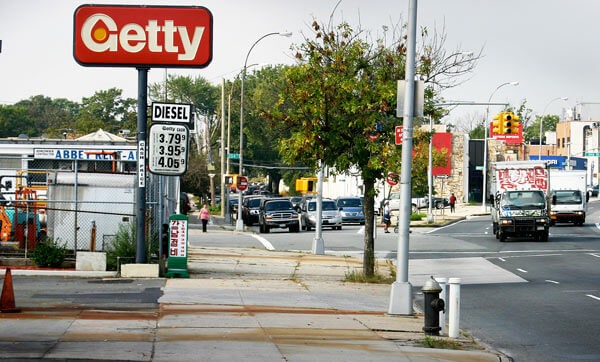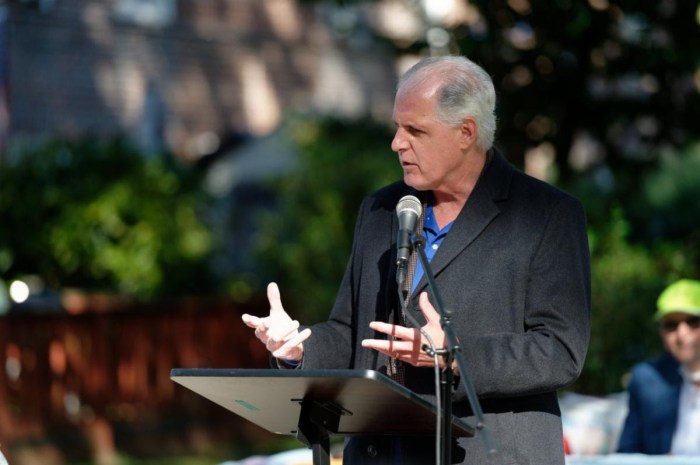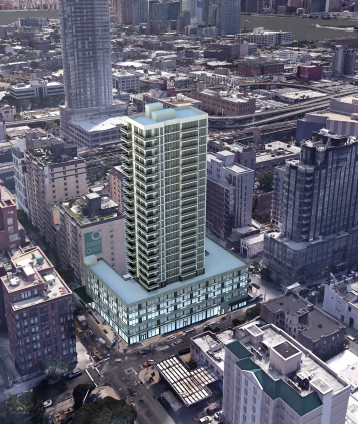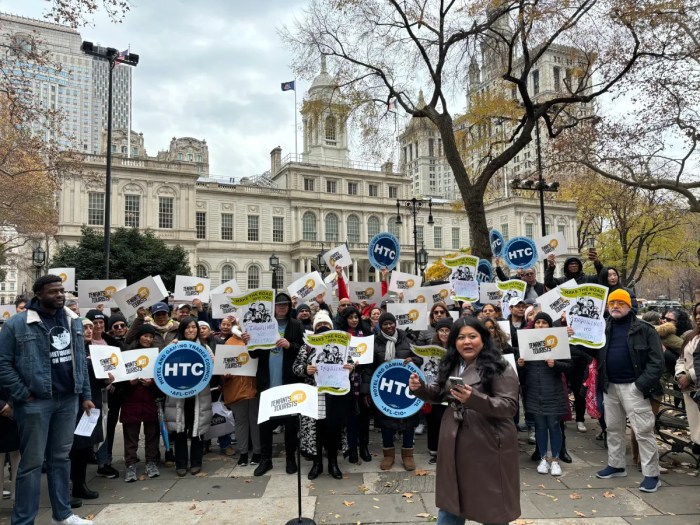By Rich Bockmann
The city Board of Standards and Appeals voted last week to renew a variance for the Getty gas station on Northern Boulevard and that decision has stirred up some of the old emotions that seem to come out any time that particular board is mentioned.
“It’s outrageous and it’s criminal,” said activist Mandingo Tshaka, who has often claimed that the gas station, on the block between 204th Street and the Clearview Expressway, is but one example of how the city approves variances that allow businesses to encroach upon black neighborhoods. “I say this all the time — you wouldn’t see this up in Bayside Gables.”
Community Board 11 District Manager Susan Seinfeld said Getty first received a variance to operate a gas station in a residential zone in 1951. After several renewals, the station’s variance expired in 2002, and partly because the BSA does not notify property owners when a variance expires, Seinfeld said it was not until February of this year that the community board held a public hearing on the variance application. The board voted to oppose it.
“They showed a high disregard for the community. They should have applied on time,” she said.
The community board made recommendations that Getty be required to build a 6-foot-tall fence and be prohibited from parking vehicles on the lot when they are not being serviced, but the BSA has not released its decision on those requests by Tuesday.
Tshaka was particularly upset because he believes Getty’s application did not meet one of the five conditions the BSA says warrant a variance. But Seinfeld said that because this is a case of reinstating a previously approved variance, the board does not use those conditions when making its decision.
The Getty renewal comes as the BSA prepares to decide next month on the variance application that would allow a developer to build a second home on a subdivided lot in the Bayside Hills neighborhood. Partly inspired by the Bayside Hills application, City Councilman Dan Halloran (R-Whitestone) introduced two pieces of legislation that would give the community recourse to combat unpopular variances.
The first would give the Council the ability to overturn BSA decisions and the second would impose fines on properties with expired variances.
State Sen. Tony Avella (D-Bayside) said he introduced similar but more extensive legislation when he was on the Council, but it was ultimately shot down by the real estate lobby.
The senator said he believed the conditions the BSA requires applicants to demonstrate are too generally defined and that the board has a history of favoring developers.
“Do you know that 90 percent of variances are approved? There’s something like five firms that do every variance application in New York City,” he said.
Reach reporter Rich Bockmann by e-mail at rbockmann@cnglocal.com or by phone at 718-260-4574.




































